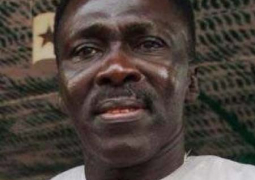From the look of things, one can say that the war on drugs is on course. Just yesterday, the Gambia government destroyed over two tonnes of cocaine seized during a joint operation between the National Drug Enforcement Agency and UK’s Serious Organised Crime Agency in 2010.
This destruction, which was done publicly in the presence of foreign diplomats, is no doubt a step in the right direction, and will go a long way in clearing public fears about seized drugs in the country.
It is evident that a lot of drugs have been seized from people over the past three years, and many are eager to know what happens to these drugs.
While it is always good to be transparent and accountable, which the NDEA seems to be manifesting, there is no doubt that yesterday’s destruction would definitely increase public confidence in the work of the NDEA.
To make this country truly drug-free, all hands must be on deck, and the communities must continue to help the security services in their work in the fight against illicit drugs.
The sad thing about the whole scenario, despite the stiff counter-narcotics laws in place to curb the menace of drugs in this country, it seems some people are still engaged in the nefarious trade of drug trafficking.
Indeed, if we are to go by the recent reports of drugs seized by the NDEA, there have been an increase in successful interceptions.
This suggests that the illicit drugs market continues to thrive, as we continue to be told by the relevant state authorities of fresh discoveries of huge quantities of drugs in the country.
Drug trafficking has far-reaching effects on any society, from the impact of drug abuse on young people and of drug money, to the presence of gangs and gang-related violence in poor neighbourhoods.
In fact, violent crime, murder and related ills go hand-in-hand with drug abuse and illicit drug trafficking, and this no doubt undermines peace and development.
The trade in illicit drugs has long-term consequences in societies, such as health problems, socio-economic and political instability, going by daily news reports, about crime in some of the states most affected by the illicit drugs business.
It is for this reason that we would like to encourage the NDEA and the military to continue the hard work, and not relax their vigilance.
Our well-being, social cohesion and security should be the objectives which guide their actions in combating the drugs menace.
We do not want to see our society destroyed, as a result of drug trafficking, and we commend the law enforcement agencies for their efforts at stopping the trafficking of illicit drugs and related activities in this our small, but beautiful country, which is known for its peace and stability.
“The key to ending drug trafficking is to wipe out the money side.”
Karen Tandy


